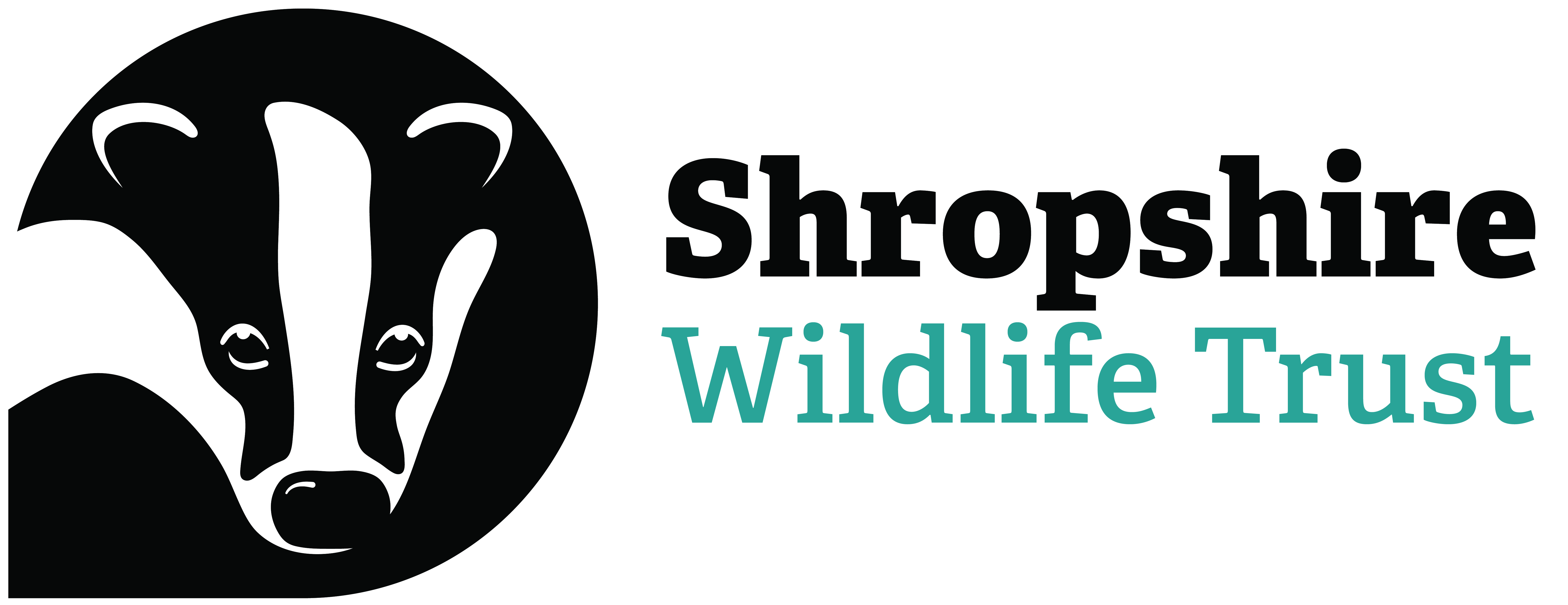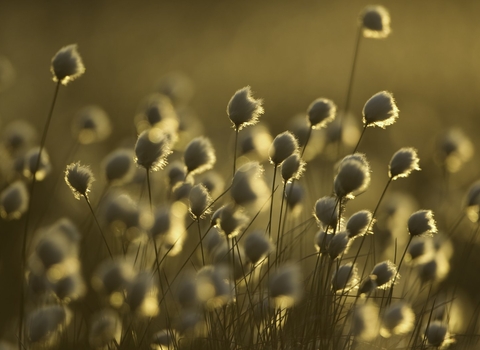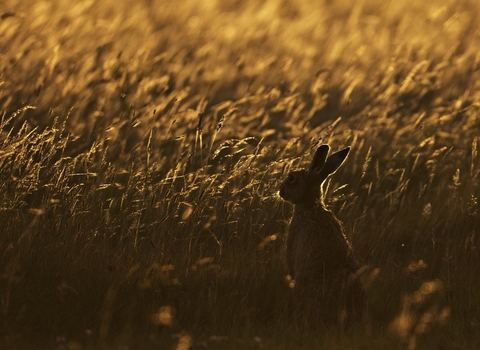What are Nature Based Solutions
Nature based solutions are methods of restoring and improving landscapes and habitats using natural resources. We're adopting these methods as a way to aid nature's recovery. These solutions use innovative ways to protect and restore existing ecosystems. They can range from the restoration of hedgerows, rivers and peatland, to reintroducing past native wildlife and sustainable tree management.
Restoring wild places will also revive the natural richness we all depend upon, making our lives happier and healthier.
Here are some of the ways we are using Nature Based Solutions within Shropshire:
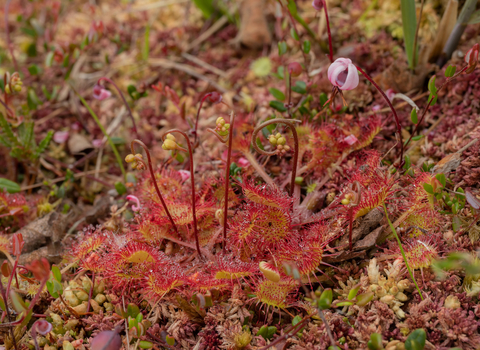
(c) Stephen Barlow
Powerful peatlands
Our peatlands represent a huge carbon store so are essential in our fight against climate change. They are also beautiful, dramatic landscapes, home to rare and endangered wildlife such as large heath butterflies, curlew and raft spider.
However, over 80% of the UK's peatlands are damaged - the peat becomes dried and exposed to the elements, and instead of storing and taking up carbon emits it back into the atmosphere as CO2. Therefore its really important that we restore them back to health, so that they keep carbon locked up in the ground.
Working in partnership with Natural England and Natural Resources Wales, we are restoring 665ha of Britain’s 3rd largest lowland raised peatbog, located in North Shropshire, with the goal of making them healthy, functioning eco-systems once again.
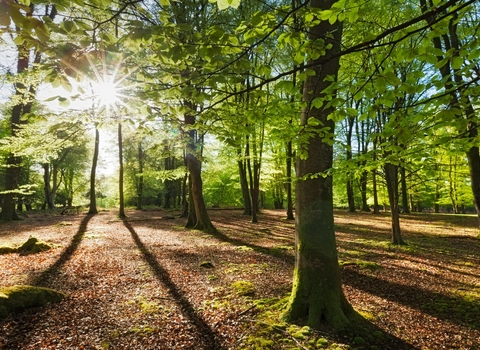
Guy Edwardes/2020VISION
Wonderful Woodlands
Woodlands are an essential habitat for much of our wildlife, from woodland flowers to birds and butterflies. They are also a key when addressing climate change for their carbon storage potential, most of which is locked up in soils.
Protecting and managing existing woodland and expanding tree cover is vital, so that we continue to lock up more carbon naturally, but it must be done carefully to avoid harming other habitats.
This also has other benefits: more woodland for people to enjoy, cleaner air and a natural air conditioning system in cities where urban trees are planted, reduced flood risk and - of course - more homes for wildlife!
Shropshire Wildlife Trust is spearheading a plan to double the area of woodland in The Marches. This is an essential part of our strategy to reduce the impact of the climate crisis through carbon capture.
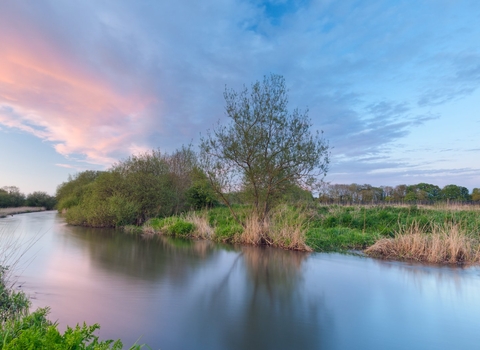
Guy Edwardes/2020VISION
Wild wetlands and watercourses
Wetlands are special places characterised by high water levels, waterlogged soils, and specially adapted plants. They might be permanently wet or only flood seasonally. Wetlands include marshes, wet grassland, and floodplains. They support an abundance of plant life, which in turn provide perfect shelter, nurseries and breeding grounds for wildlife.
They are hugely important for holding carbon, slowing the flow of water, cleaning it naturally and reducing flood risk downstream. It is vital that our remaining high-quality wetlands are protected, as it can take decades for restored wetlands to be able to draw down carbon at the same rate as natural wetlands.
Climate change is resulting in changeable weather patterns, flooding in particular can have devastating impacts on communities and businesses and in 2020 we saw this first hand in Shropshire, with river levels reaching record levels. Our Rivers Team are working on a variety of projects, introducing natural flood management techniques and working with landowners to improve the way catchments function to try and mitigate this challenge.
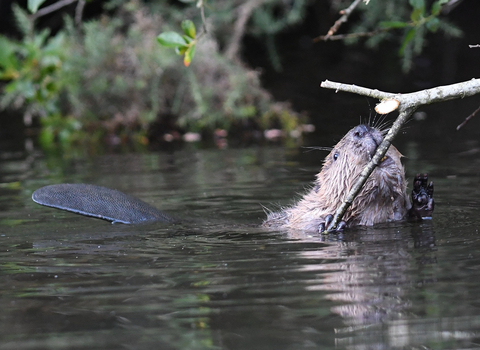
David Parkyn - David Parkyn/ Cornwall Wildlife Trust
Brilliant Beavers
Beavers create thriving ecosystems helping us to put nature firmly back on the road to recovery. The wetlands and pools they create capture carbon, locked up in boggy vegetation, helping to tackle climate change. And they do all this for free!
They are industrious ecosystem engineers. Their habitats support a wide range of other species, they slow the flow of water, mitigating climate change impacts by reducing flood risk downstream and keeping streams and rivers running during droughts. We hope one day that Beavers will return to Shropshire!
The Wildlife Trusts are calling for a Beaver Strategy for England. They should be an integral part of a green recovery, playing a major role in helping nature to recover. We want them to have a secure future.
Nature needs to be everywhere
We need more space for wildlife and greater biodiversity, so that natural systems can store much more carbon and wildlife can cope with the impacts that are already happening. Nature’s recovery must be put at the heart of planning; construction and development must avoid unnecessarily damaging vital natural carbon stores, and must compensate for its impact on the natural environment.
A Nature Recovery Network will connect nature-rich places, everywhere, bringing wildlife and the benefits of a healthy natural world into every part of life.
A Climate and Ecological Emergency
We are in the middle of a climate and ecological emergency, and the two are inextricably linked. Climate change is driving nature’s decline, and the loss of wildlife and wild places leaves us ill-equipped to reduce carbon emissions and adapt to change.
One cannot be solved without the other.
That is why The Wildlife Trusts are calling on the Government, industry and local authorities to step up and take action, by investing in nature’s recovery and climate change mitigation. Drawing on the latest research, the 'Let Nature Help' report shows how a variety of natural landscapes in the UK can store carbon and could absorb a third of UK emissions if these degraded habitats were to be expertly restored. It makes the case for addressing the climate and nature emergencies together, head on.
